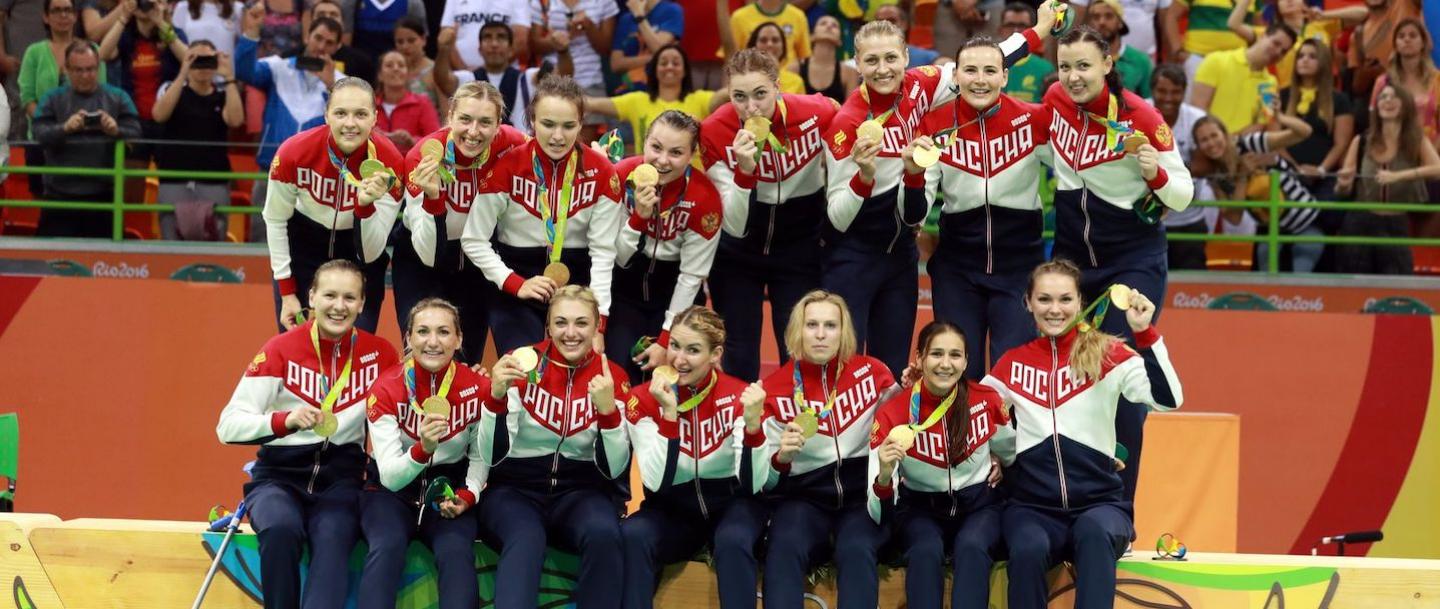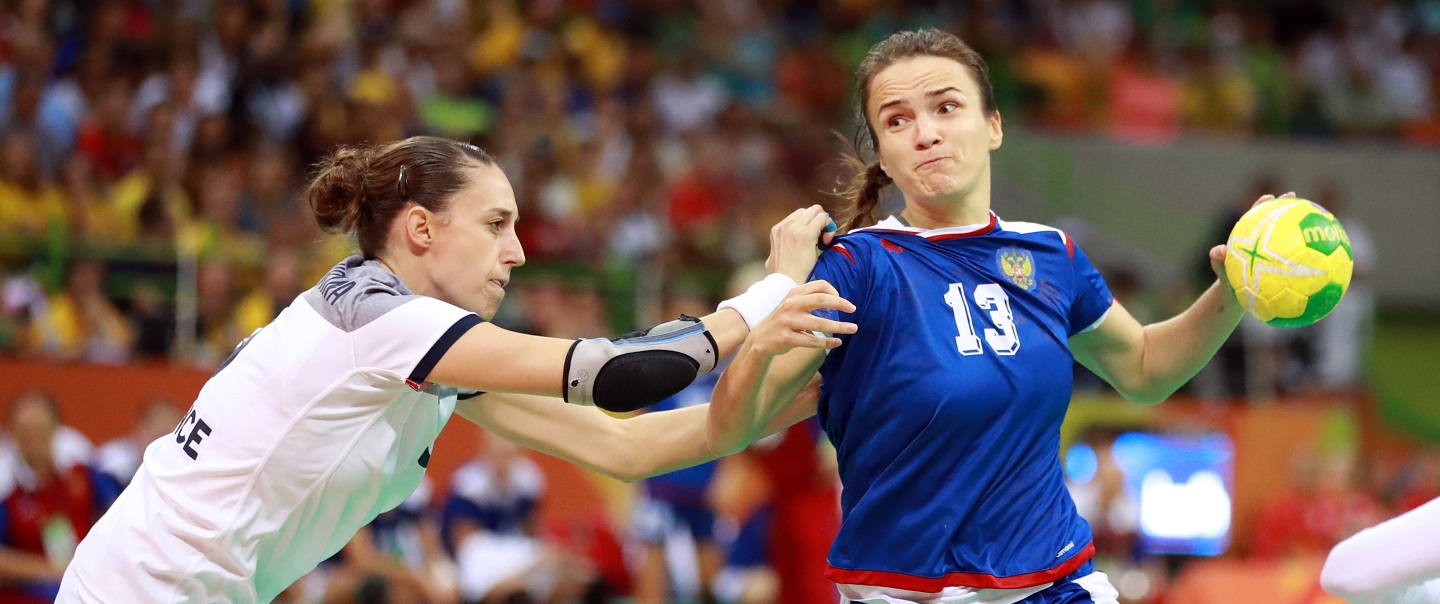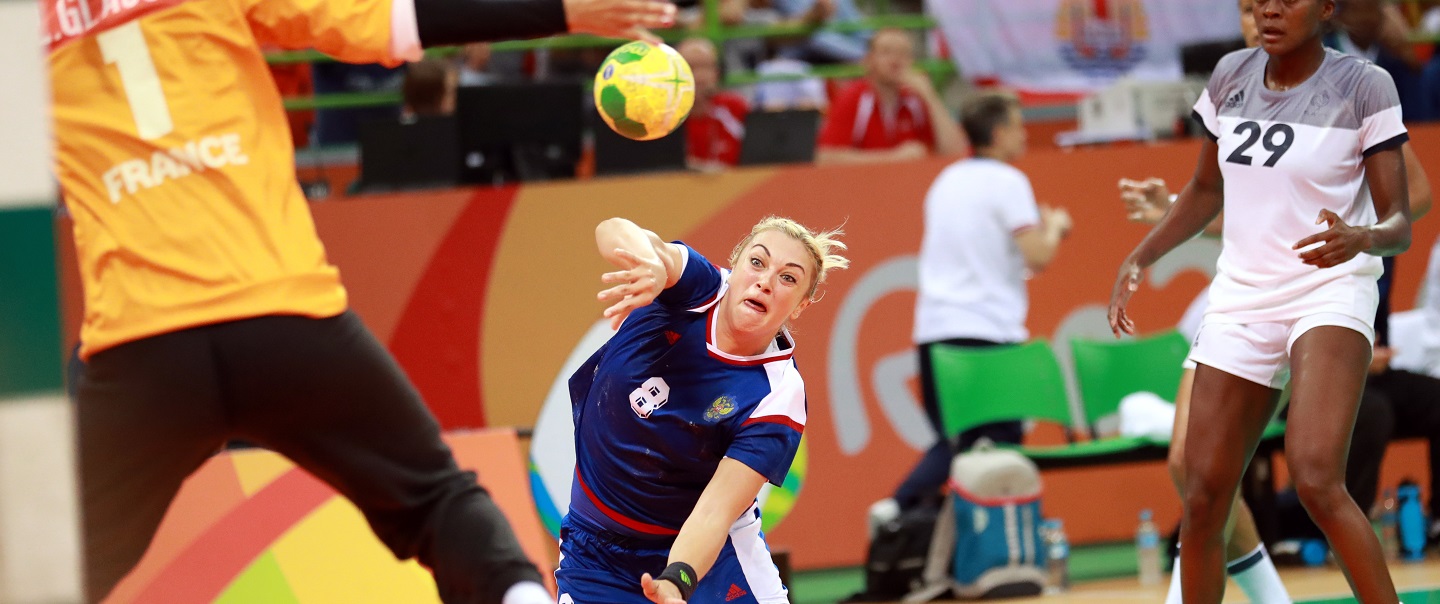Rio 2016 reflection: Handball leads the way for Russian women’s team sports
22 Jun. 2020

With Olympic Day approaching on 23 June, ihf.info looks back at the most recent Olympic Games, in 2016, when two new champions were crowned in the handball competitions.
Both the men’s and women’s competitions at the Olympic Games Rio 2016 began with the defending champions aiming to collect a third straight title, and both ended with those teams being overthrown and a completely new winner climbing the podium.
In the women’s Rio 2016 tournament, Russia were the new gold medallists. It was a historic achievement for more than ‘only’ handball, as it was also the first Olympic gold medal for Russia in any women’s team sport.
“I was crying when I listened to our national anthem, because for me it was a dream – one of my biggest dreams,” said Russia's Anna Sen after the win. “We achieved what we wanted. I don’t feel yet that I am an Olympic champion. Everything for me is like a dream.”
The 2016 Olympic gold medal ended a long wait for a title for Russia, whose last trophy prior to that was the 2009 IHF Women’s World Championship – the last in their impressive run of four world titles from 2001 until that point. Following that decade of World Championship dominance, during which Russia also took a silver medal at the 2008 Olympic Games and three pieces of silverware at the EHF EURO, the team fell from the top global rankings.

At the EHF EURO 2014, Russia did not make it past the preliminary round, ranking 14th in their continent. But that placement was followed by a vastly improved result of fifth at the event immediately prior to the Olympic Games, the 2015 IHF Women’s World Championship. Nevertheless, Russia were not among the most strongly favoured sides before Rio 2016 – just like the champions in the men’s competition, Denmark.
The teams that placed highest at the 2015 World Championship – winners Norway; silver medallists Netherlands, qualified for their first Olympic Games; and bronze medallists Romania – were seen as the biggest threats. However, the Rio 2016 women’s competition in particular brought big surprises.
Romania and the silver medallists from the Olympic Games London 2012, Montenegro, did not proceed past the preliminary round. Republic of Korea, at that point record holders of the most medals won in the women’s Olympic handball tournament, were also knocked out in the first stage and finished in their lowest ever position.
With victories against all their opponents – Republic of Korea, France, Sweden, Argentina and Netherlands – Russia topped Group B. The wins against France and Sweden were particularly close, but Russia clearly established themselves as a strong force with their preliminary round showing.
In the quarter-final, Russia took on the fourth-ranked side from Group A, Angola, earning a four-goal victory, while Norway defeated Sweden to set up a highly anticipated semi-final. Russia back Anna Vyakhireva said before the semi-final against Norway that she believed the winner of that match would be Olympic champion, and she proved correct.
The semi-final against Norway was a thrilling one. All four semi-finals in the handball competitions at Rio 2016 finished with a one-goal difference, and two of the four were decided in extra time. That was the case for Russia and Norway. After the final minute of extra time started with a level score, Ekaterina Ilina scored the match winner and Russia booked the final ticket.
Russia’s final opponents France knocked out 2012 Olympic bronze medallists Spain in their own extra time quarter-final, pulling off a big comeback after trailing by seven as late as the 46th minute. Centre back Gnonsiane Niombla equalised in the 60th minute to send the game into extra time, and Spain were left shocked at the end of the 70th minute after such a promising advantage.
France met the Netherlands in the semi-final, winning 24:23 to reach what was their first Olympic final.

In the gold-medal match, Russia took the lead immediately. Although France fought back to come within reach of their rivals at several points in the match, the only time they managed to equalise was at 14:14 in the 46th minute before Russia pulled away and claimed the historic medal.
“Russia are really strong. They played very good defence. We missed some shots in the first half and I think it was really hard for our mentality. We still came back and equalised but they were so strong,” said France goalkeeper Amandine Leynaud following the match.
“I will not cry or anything. They deserved this medal as much as we did and I just want to enjoy this moment.
“We ran after this medal for a long, long time…I am so happy to have won it.”
For both Russia and France, the 2016 Olympic Games signified the start of a new era for their national teams. Although Russia have not won another trophy yet, they returned to the medal rounds at the EHF EURO 2018 and the 2019 IHF Women’s World Championship. Indeed, it was France that Russia met in the final of the 2018 European championship, but it was France’s turn to celebrate the title on that occasion.
France also clinched the 2017 IHF Women’s World Championship trophy in Germany, and took the bronze medal at the EHF EURO 2016, a few months after their Olympic achievement.
The two Olympic finalists have celebrated success since Rio 2016, but the champions Russia wait to climb to the top of a podium once again. The two sides have also experienced disappointing early exits, such as France’s shock elimination after the preliminary round at Japan 2019, where expectations for the defending champions were high.
The results for both sides since their Olympic achievement highlight the increasingly competitive nature of women’s handball, and prove that when the Olympic Games Tokyo 2020 throws off next August, handball fans can expect nothing but the unexpected.

